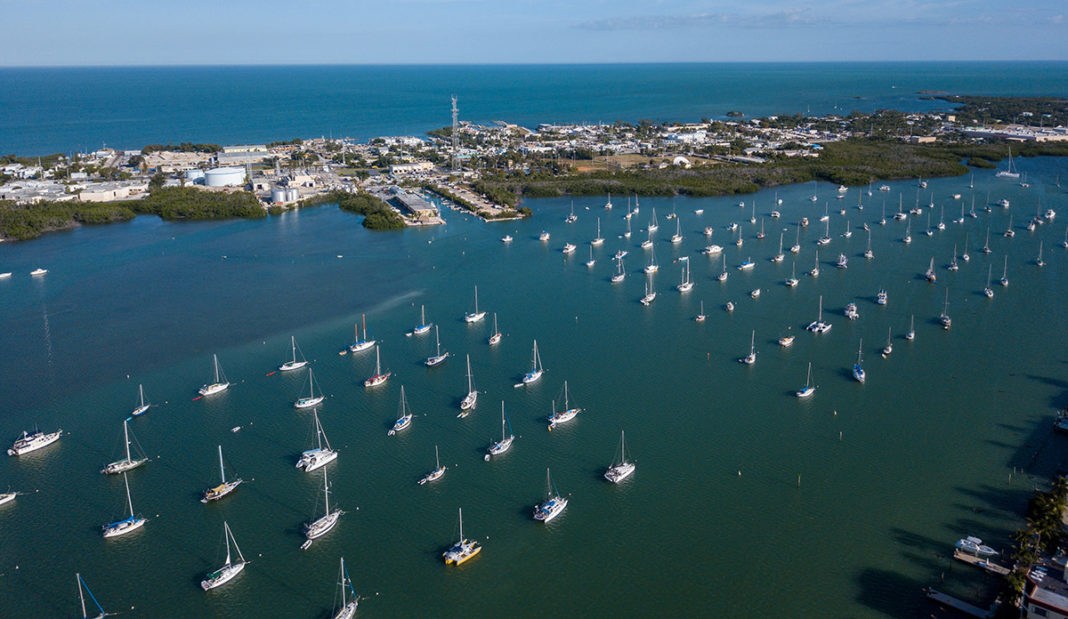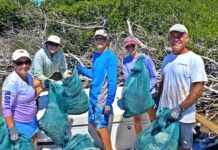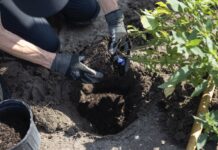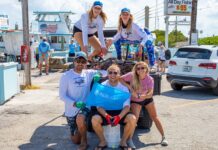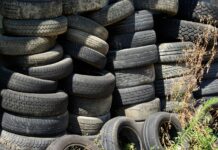At its June 17 virtual meeting, the Board of County Commissioners dealt with the sticky issue of vessel pumpouts, voting unanimously not to renew the expiring contract with the current pumpout provider and to seek bids for a new Keyswide mobile vessel sewage pumpout service.
Historically, the county had its own pumpout boat servicing the Key Largo area, primarily serving anchorage areas and those not close to shoreside, assistant county administrator Christine Hurley told the BOCC. The county partnered with the Florida Department of Environmental Protection Clean Vessel Act (CVA) program to create a Keyswide service in 2013. Pumpout USA was awarded the contract to provide free pumpout service to anchored-out vessels.
“The purpose of the service is to make it easy for boaters to follow the laws that require no discharge of sewage from boats in federally designated marine sanctuary waters,” county spokeswoman Kristen Livengood said.
The service is funded in part by County Boater Improvement Funds, which come from surcharges on boater registrations and state funding, Livengood said.
“The program has been very successful,” said Hurley. “We started with 1,300 pumpouts per month as a quota for the vendor and we got as high as 2,200 a month last year.” The additional pumpouts were from an additional, one-time $750,000 grant from the state towards the program.
The current contract expires June 30, and the county and vendor have been unable to agree on terms for continuing service and/or renewing the contract. The county offered the contractor a new contract capped at 1,527 pumpouts per month, with the ability to increase should the county receive a new CVA grant for which it has already applied and contingent upon receiving $350,000 state funds, Hurley said.
Pumpout USA indicated it cannot operate at the lower quota and remain financially solvent. It rejected the contract, as is, requesting higher quotas or a shorter operational period, Hurley said. The county declined and instead decided to seek a new vendor.
Craig Barker, a Pumpout USA executive, said, “I worry, if we revert, boats won’t use land-based pumpout facilities. Boats prefer mobile services, and we collect more than 10 times the sewage than land-based pumpouts.”
In the Keys, most anchorages have nearby shoreside pumpout facilities.
In Marathon, the pumpout services are operated by the city-owned marina. Using two boats, it services about 800 vessels per month, collecting more than 7,000 gallons of waste — about 98% of the boats on mooring balls or anchored in Boot Key Harbor, according to Matt McJunkin.
“We have scheduled days where we go out, or captains can make an appointment to come to the city marina dock,” said Matt McJunkin, assistant ports director. The cost is $5 per boat — included in the monthly rental of the mooring ball or collected in advance for those outside the anchorage.
McJunkin said some private marinas in the Middle Keys offer pumpout services, but many facilities were damaged by Hurricane Irma. Both the county and Keys municipalities are ramping up efforts to grow shoreside pumpout capability. McJunkin said the Clean Vessel Act has a simple grant that would cover 75% of the $10,000 cost for a portable unit.
In the city of Key West, a designated pumpout boat handles the waste for the 149 transient and liveaboard vessel moorings in its managed mooring field off Garrison Bight. The city purchased its own boat with grant money to provide pumpout services to all vessels in the mooring field. The city will continue those services as usual, and will not be impacted by the county’s contract, Key West spokeswoman Alyson Crean told Keys Weekly. The city does not, however, provide pumpout service to vessels anchored outside of its mooring field, which is outside the city’s jurisdiction, Crean said.
Monroe County Mayor Heather Carruthers noted that she was still concerned about the Upper Keys, “where we don’t have a municipality with a pumpout facility” and because the process to seek a vendor could take three to six months.
“The bottom line is, we don’t have the money we had last year. We don’t know if we’ll ever be able to get the money we thought we’d get this year,” Carruthers said. “Still, it’s not a bad idea to throw out an RFP (request for proposal) to make sure we’re getting the best price for taxpayers.”
Commissioner Sylvia Murphy said she hopes the county can partner with other entities to offer service on the bayside of the Upper Keys. Islamorada Mayor Mike Forster, who’s also running for the County Commission, said he’s optimistic the issue will be resolved on a county level and that the village can piggyback on the new contract. If services aren’t reinstated soon, then the village will have to address the need separately, he said.
Robby Majeska, former Key Largo Wastewater Treatment District board commissioner and a current candidate for Monroe County Commission, offered to ask the KLWTD board about possibly funding the Key Largo pumpouts.
“We need to clean the water,” Majeska said. “That’s what we’re supposed to be doing.”
Boaters who currently use the mobile vessel pumpout service will need to use land-based services beginning on July 1, until a mobile service resumes. There are more than 30 land-based pumpout facilities in the Florida Keys, which are listed at www.monroecounty-fl.gov/pumpout.
— Sara Matthis, Jim McCarthy and Mandy Miles contributed to this report
















